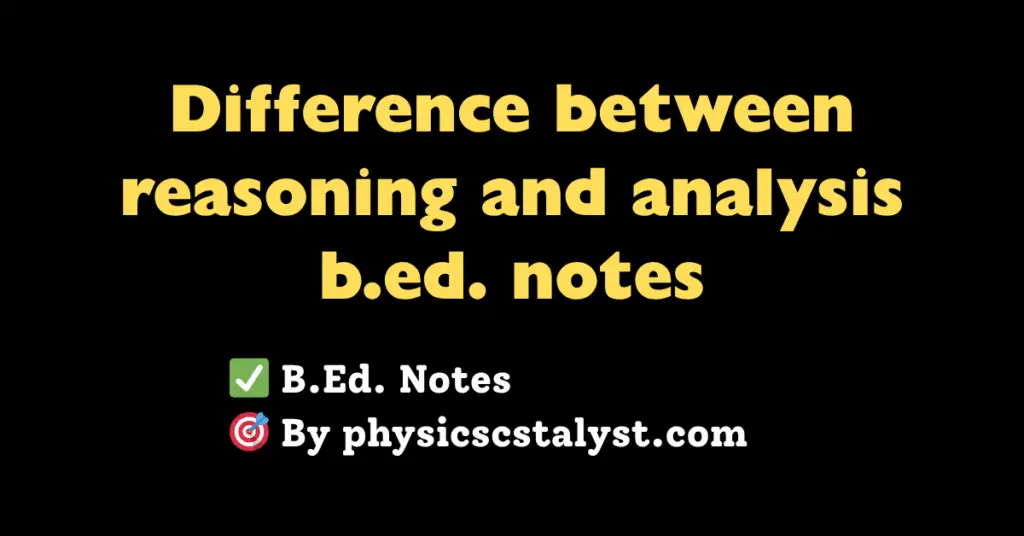Understanding the difference between reasoning and analysis is important for B.Ed. students and all educators because both are fundamental thinking skills used in teaching, learning, and decision-making.
What is Reasoning?
- Definition: Reasoning is the mental process of drawing conclusions or making decisions based on facts, observations, or evidence.
- Purpose: It helps to solve problems, make judgments, and form logical conclusions.
- Types:
- Deductive Reasoning: Starting from a general principle and applying it to specific cases.
- Inductive Reasoning: Drawing general conclusions from specific observations.
- Abductive Reasoning: Finding the best explanation from available evidence.
- Analogical Reasoning: Comparing similar situations to draw conclusions.
- Nature: Cognitive and logical thinking that evaluates information to make sense of it.
- Application: Used in daily decision-making, problem solving, and learning new concepts.
Example: When a teacher infers a student’s difficulty in a topic based on their test performance and plans remedial teaching.
What is Analysis?
- Definition: Analysis is the process of breaking down a complex topic or problem into smaller parts to understand it better.
- Purpose: To examine components, relationships, patterns, or causes within a subject to gain deeper insight.
- Nature: Detailed, systematic, and often investigative approach.
- Techniques:
- Separating information into categories.
- Identifying patterns or trends.
- Examining causes and effects.
- Application: Helps in research, understanding difficult concepts, and evaluating data.
Example: A teacher analyzing exam papers to identify common mistakes made by students.
Key Differences Between Reasoning and Analysis
| Aspect | Reasoning | Analysis |
|---|---|---|
| Meaning | Drawing conclusions using logic | Breaking down information into parts |
| Focus | Making judgments and decisions | Understanding structure and relationships |
| Process Type | Cognitive evaluation and inference | Detailed examination and investigation |
| Role in Thinking | Uses facts to form conclusions or decisions | Dissects complex information to increase clarity |
| Outcome | Logical conclusions, solutions, or decisions | Clear understanding of components and patterns |
| Examples | Deciding best teaching method based on data | Studying curriculum content by topic segments |
Why Are Both Important in Education?
- Reasoning helps teachers and students make good decisions and solve problems effectively.
- Analysis supports understanding complex ideas and identifying factors influencing learning.
- Both skills together develop critical thinking and help in effective teaching and learning.
Summary of Points
- Reasoning is about thinking logically to reach conclusions.
- Analysis is about studying the parts to understand the whole.
- Reasoning involves cognitive judgments; analysis involves breakdown and detailed study.
- Both are complementary in educational processes.

